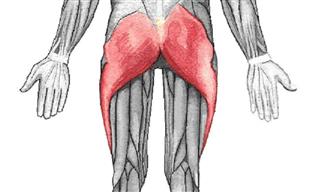1. Stay active

When you do high-intensity exercises, your muscles need more nutrients and the blood is redistributed among them. Consequently, this results in a decrease in blood flow to your brain. However, easy and moderate exercises, on the contrary, may help you increase brain circulation.
Aerobic exercises, in particular, have positive effects on brain blood flow. You can, therefore, choose to do anything, be it a swim, bicycle, dance or yoga. A short brisk 30-50 minute walk throughout the day will also help. In addition, make it a point to get active whenever you have the chance. That includes taking the stairs instead of the elevator, getting off the bus before you exit so that you can walk the remainder of the route, and sometimes, choose other routes to get to your grocery.
2. Stretch your muscles
Stretching improves overall circulation in your body by preventing stiffness in your joints and muscles. It also helps your brain receive more oxygen and other essential elements so as to work properly. Some of the best stretches to improve circulation include inversion poses, anything in which you have your head below your heart.
This is the simplest and by far the most effective thing you can do. Try downward-facing dog pose and the standing forward bend. Do take care though. If you feel pain or discomfort in your back consult your doctor immediately.
3. Meditate more often

According to some studies, meditation may actually offer a number of brain benefits and that includes increased circulation to this organ. If you practice a singing meditation, called Kirtan Kriya, for 12 minutes a day you will likely notice your mind becoming clearer and your memory improving and mood more stable. To do this, sit in a simple cross-legged position with your neck straight, your chin down and your hands on your knees with your palms facing upward. Then, chant the sounds 'Saa Taa Naa Maa' - which means infinity, life, death, rebirth.
4. Don’t be afraid of cold water
Exposing yourself to cold can help get more blood flowing to your brain. Some studies show that immersing your foot or your hand in cold water, even if it's just for a few minutes, may increase your blood pressure, reduce your heart-rate and make the blood vessels in your heart and brain work faster. Cold exposure also stimulates the vagus nerve, one of the longest nerves in your body that links the brain stem to the heart, lungs and digestive tract. This nerve controls heart-rate regulates blood pressure and also the blood glucose balance.
5. Sunbathe

Exposure to bright light and sun improves brain functioning by increasing the natural production of nitric oxide, a substance that dilates your blood vessels and lowers blood pressure. Exposure to the sun will also help your skin produce more vitamin D which is essential for your brain health, good memory and proper blood circulation. So if you spend at least 10 minutes every day in sunlight during the spring and summer months, you won't need to worry about depression or cognitive impairment, as your brain will be getting sufficient and essential nutrients.
6. Improve your diet
Dark chocolate is highly beneficial. It contains cocoa beans which are rich in flavonoids. These phytonutrients also improve your cognitive performance and increase blood flow to key areas of your brain just 2 to 3 hours after eating them. To get this result, it is important to choose a type of dark chocolate that contains at least 70% cocoa. You should also include superfoods into your diet, eating foods like nuts, seeds, and blueberries which may have a positive impact on maintaining a healthy brain as they have high nutritional value and contain vitamin E.
Avocado is another superfood that is high in monounsaturated fat which helps control cholesterol levels and leads to lower blood pressure. You can also drink beet juice as it is rich in nitrates and converts them after entering your body. In fact, studies show that a single dose of this substance contained in 15oz of beetroot juice is able to widen your blood vessels, increasing blood flow to your brain and significantly improving your cognitive performance.
7. Use chewing gum

Chewing gum may actually increase blood flow to your brain by 25% to 40% and it improves your cognitive performance and brain function by increasing its oxygen supply. Chewing stimulates nerves and areas in the brain associated with arousal, so it may help you feel more awake during the day. Chewing gum continuously activates your hippocampus, a part of your brain that influences your memory and learning skills. Another more surprising advantage of this activity is that it may alter your brainwave patterns so that you feel more focused and relaxed.
8. Take dietary supplements
Most of us do not eat enough foods with essential fats and our bodies are unable to produce them themselves, which is why you should consume omega-3 fatty acids. Still, your brain and nervous system need them to work properly. So, should you start taking additional omega-3s you'll be able to significantly reduce brain inflammation, improve memory, mood, and cognition.
You could also take Ginkgo biloba, the leaves of which contain flavonoids and terpenoids that are both effective in improving brain health. Flavonoids are powerful antioxidants that protect your blood vessels from free radical damage while terpenoids are responsible for dilating the blood vessels and improving overall brain circulation.
 Go to BabaMail
Go to BabaMail

























































